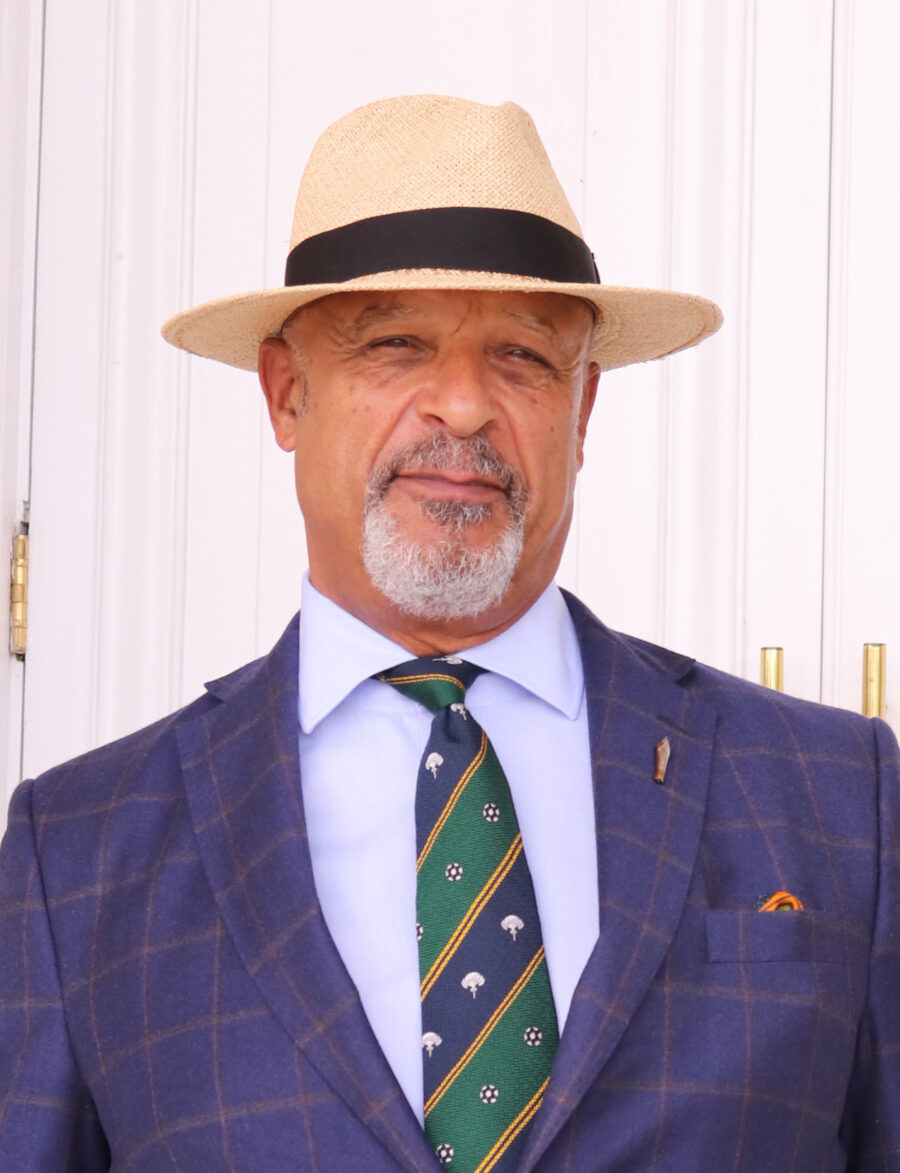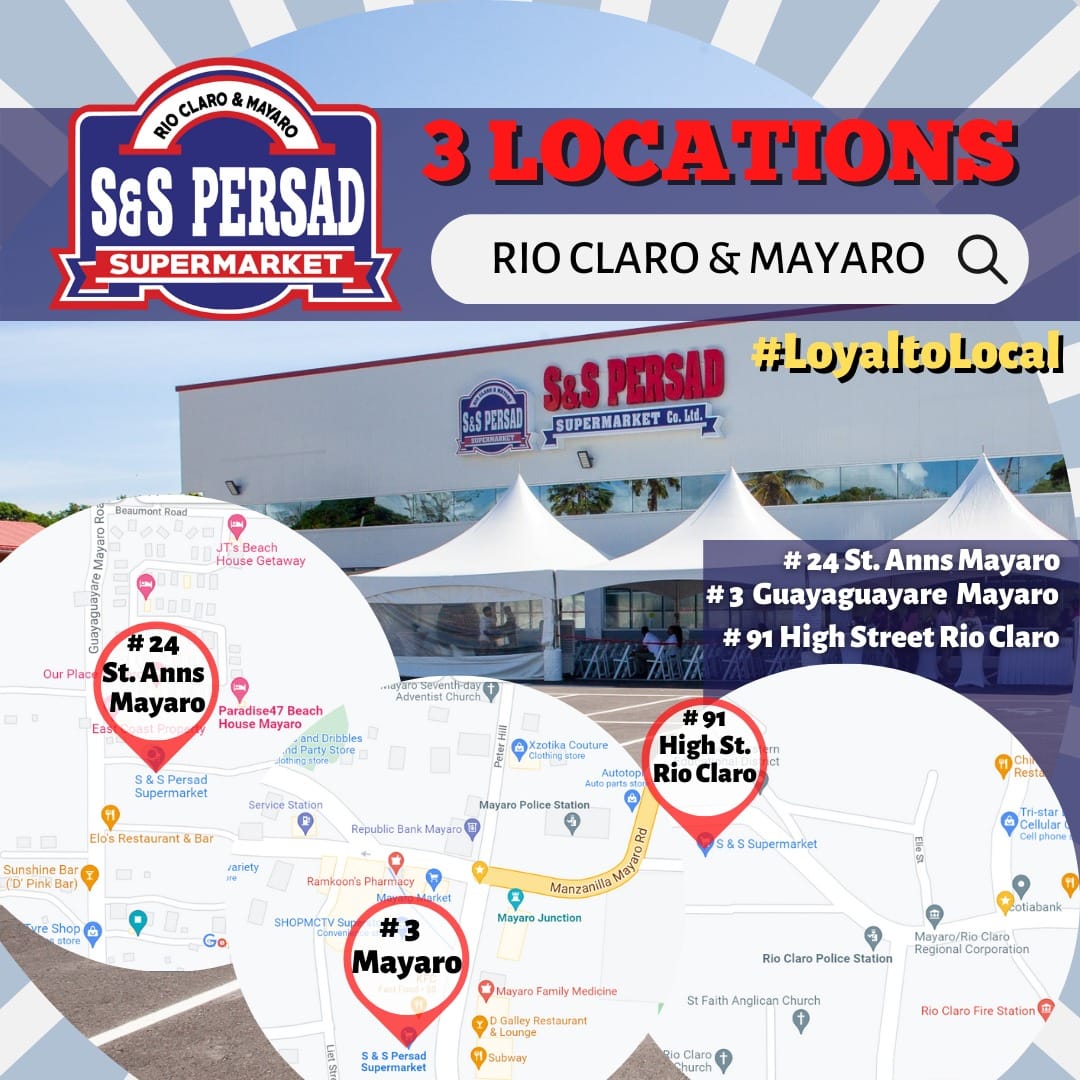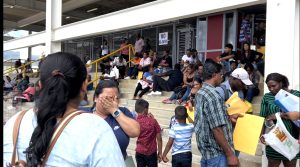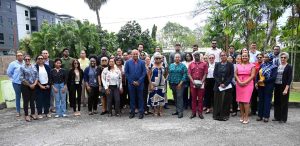By Sue-Ann Wayow
SOME family members of the men who died in the Paria-LMCS tragedy last year will give evidence at the Commission of Enquiry.
The decision was made after hearing arguments from interested parties following an application by Paria’s attorney Gilbert Peterson, SC, on Monday morning that the families not be allowed to speak at the CoE’s evidentiary hearings.
CoE’s chairman Jerome Lynch, KC, said he has reviewed the evidence of six persons including Vanessa Kussie, wife of Rishi Nagassar, someone from the Fyzal Kurban family who was not yet named and two persons from Yusuf Henry’s family.
He said the evidence from four were “admissible and relevant to this enquiry.”
They will be allowed to give their evidence without being cross-examined and they will also not be permitted to cast any blame on a particular entity for the incident.
Lynch said further consideration will be given whether or not to allow Henry’s family members to give evidence.
Reason for the decision will be made known to the enquiry on Tuesday morning, Lynch said.
‘Population deserves to hear from the families’
The population of Trinidad and Tobago deserves the right to hear how the incident at Paria’s facilities which resulted in the death of the four underwater divers continues to impact their families.
This was the admission of attorney Prakash Ramadhar who said the incident that occurred on February 25, 2022 did not end there or the few days after.
Ramadhar along with attorney Asif Hosein-Shah, representing the Seamen and Waterfront Workers Trade Union (SWWTU) opposed Paria’s application that the family members not be allowed to give evidence at the Commission of Enquiry (CoE).
After the CoE’s first break, the Commission heard further reasons from Ramadhar and Hosein-Shah why they opposed Paria’s application.
Ramadhar said, “We cannot have an accident or an incident without fully appreciating the consequences and the consequences is not just on Paria, indeed, the ultimate consequence would have been the loss of human life.”
Examining the CoE’s terms of reference, Ramadhar said the children of the two men’s families he represented had to live on with an emotional injury, one that was far worse than a physical injury, one they could never heal from.
“This is directly relevant to the accident and its consequences and to suggest that it does not fall within the confines of the authority of this Commission would be to miss the point altogether,” he said.
Ramadhar continued, “This is a Commission not for the lawyers, not for the Commissioners, not for the Parias and the companies. This is a Commission for the people of Trinidad and Tobago.”
He said citizens needed to hear exactly who the men were and that their lives mattered.
Ramadhar said he found it surprising that Paria would not want the country to know that information and to “suffocate the voices of those who are so powerless.”
He said, “It is directly within Terms of Reference two six because the accident and its consequences continue in the hearts and in the beings of those who are left behind.”
Paragraph two line six of the Terms of Reference states, “To make such findings, observations and recommendations arising out of its deliberations as may be deemed appropriate in relation to… making any other recommendations that may be deemed necessary in the circumstances.”
Senior counsel to the Commission Ramesh Lawrence Maharaj made a brief statement on the application.
He said, “It would seem to me that the Terms of Reference permit the Commission to hear the representations of the family and in particular the Terms of Reference which says that the Commission may make any other recommendations that may be deemed necessary in the circumstances.”

Maharaj said, “It would seem to me that it would be an abdication of the responsibility of the Commission not to allow the families of the deceased persons to say what they want to say on this occasion.”
Lynch added that the Terms of Reference were used to guide the Commission and that the CoE was not confined to it.
He told Peterson, “One of the factors that we are engaged in is the level of communication between Paria and the families of those who were still in the pipe. And that, it seems to us is a proper consideration.”
![]()














